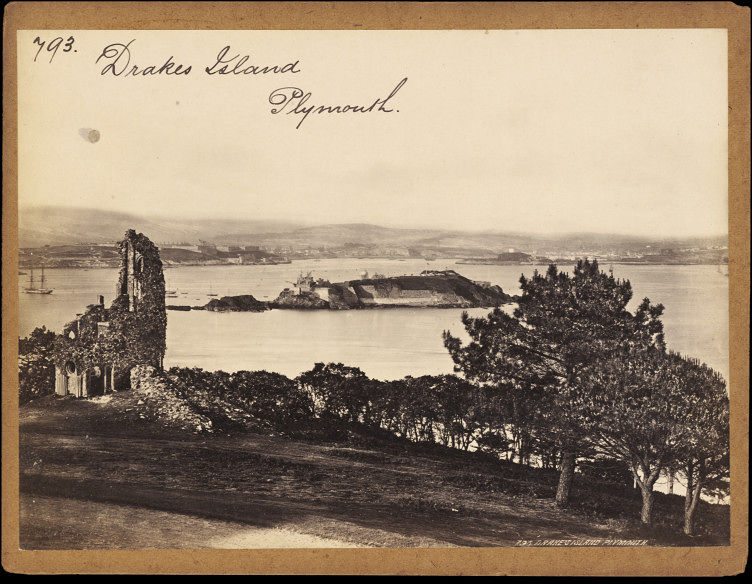By 1873 a detachment of the 12th Brigade of the Royal Artillery were garrisoning Plymouth with 3rd Battery stationed on Drake’s Island. Major Cummings RA was the Battery Commander. It seems the first time the Garrison had been at full strength for a while was the start of the spring drills or training as the men had been taking their leave at different times over the winter. It is not clear how long the drills lasted though they started early in the morning and were described as incessant. On 8th April Major Cummings ordered the Battery to parade in marching order. A kit inspection followed and a number of items were missing from the knapsacks. This was not unusual as equipment was at times not issued due to short supply or the men would pawn some of their equipment until the next pay day or even sell it and report it deficient to the Quartermaster. 8 men were selected for punishment although more had missing equipment. They were initially given 3 days extra drill. At 4 o’clock the bugle sounded for defaulters parade but none of the 8 paraded. Major Cummings then called a General Assembly or Parade of the whole battery at which the punishment was increased to 7 days extra drill then to 10 days when they failed to return within 10 minutes in marching order.
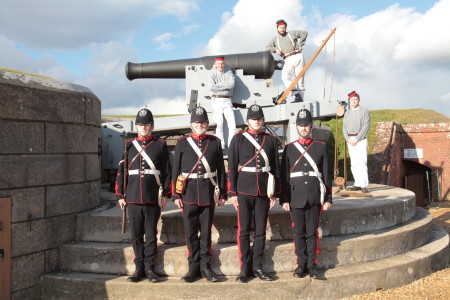
During the evening the evening the Gunners got drunk in the canteen but were seen by Battery Sergeant-Major Evans as they were returning to their barrack room. The BSM met Sergeant Grounds at about 9.30pm and told him to arrest Gunner Mullet who was drunk. Sergeant Grounds got together an escort from the Guard but on entering the barrack room Gunners Burnside and Davis stood between the guard and Gunner Mullet. They shouted they were not slaves and would not allow Mullet to be taken. The rest of the barrack supported them and the lights were extinguished at which point Sergeant Grounds decided he had insufficient force to arrest the men and withdrew.
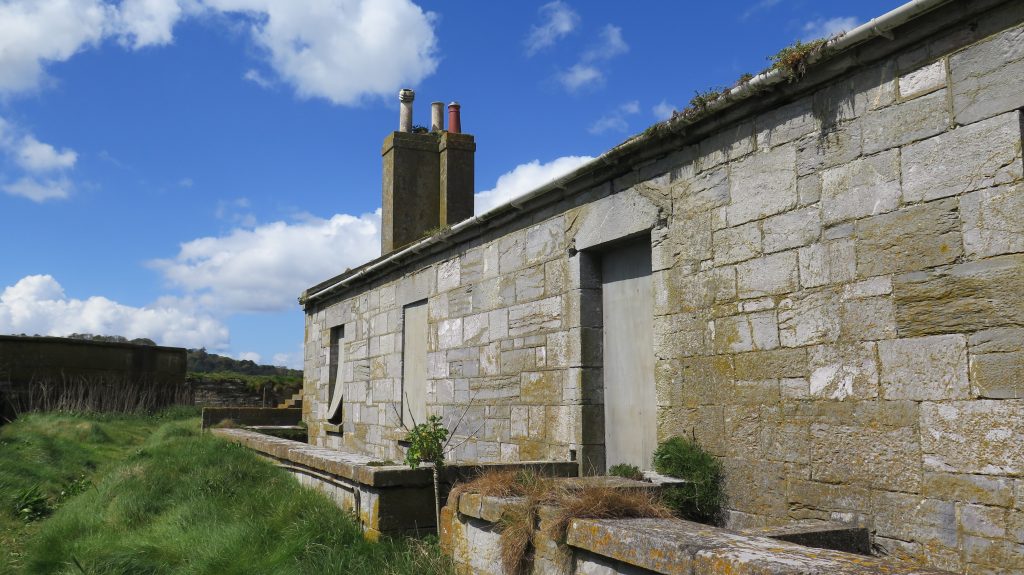
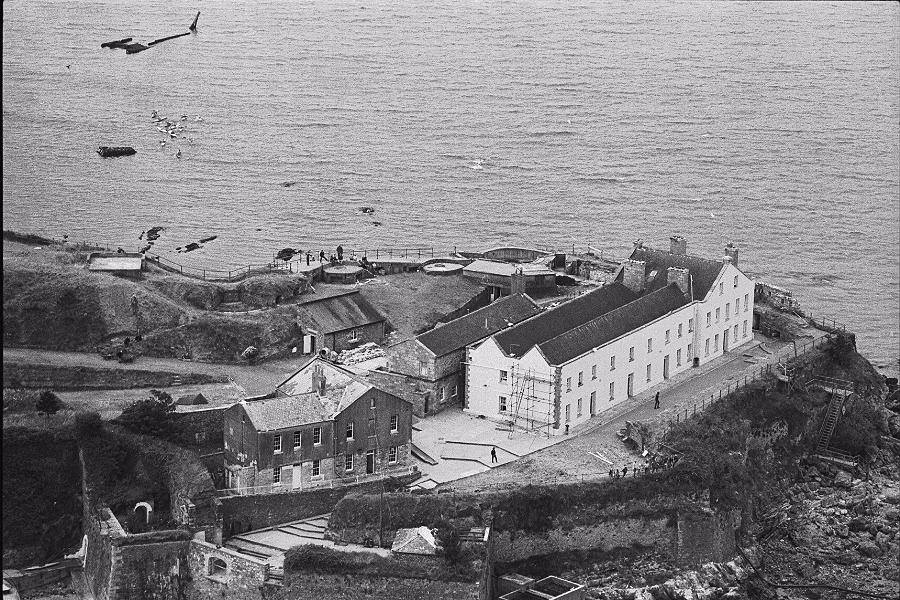
Shortly after by 10pm whilst Sgt Grounds was considering what to do next there was a loud commotion in the barrack room as the men were shouting and singing as they broke windows, furniture and some carbines. There was no armoury as such in those days. The men kept their carbines, a shortened rifle used by Dragoons and Artillery, in racks in their barrack room along with a long bayonet or sword although the powder and shot was kept in a locked or guarded magazine. The guard again went into the Barracks to restore order but was forcefully resisted when they entered the barrack room and either decided discretion was the better part of valour and withdrew or were driven back. A stronger guard was called out and reported the men had armed themselves with swords (bayonets) and were threatening anyone who approached. The Guard then laid siege to the barrack block. Gunner Burnside rushed out with a carbine and sword but was secured after a desperate resistance. Other men now started to try and escape by jumping out of the windows but were arrested by the Guard.
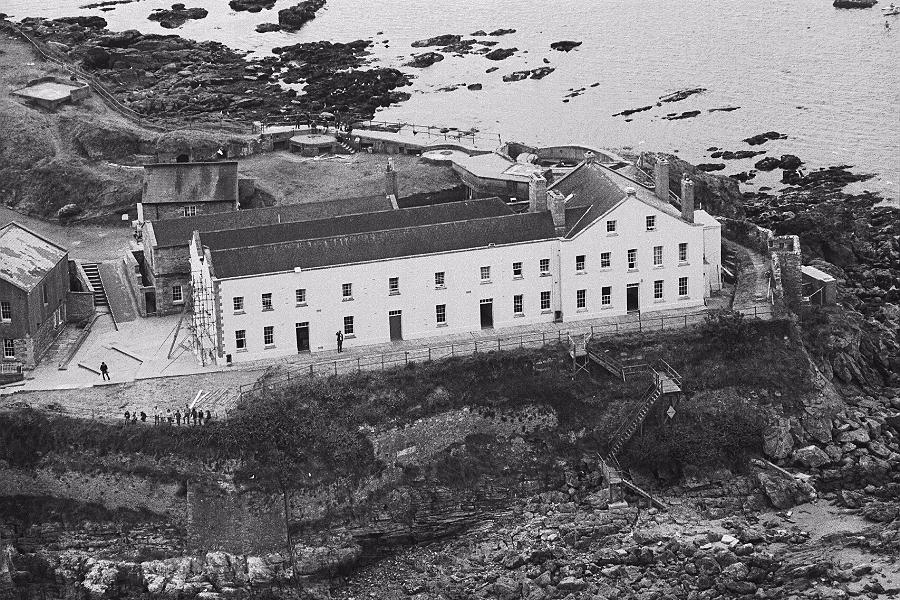
Eventually the noise quietened and 6 gunners were arrested although they were not all part of the original 8 selected for punishment. One of those was one of the Guard, Gunner Pearse, who Sergeant Grounds said had not taken Gunner Mullet who was drunk and confined him when ordered to do so. 4 men, Burnside, Hammond. Mullet and Cook were charged with mutiny, drunkenness and breaking carbines and windows the property of the government but made it known they felt they were being subjected to a petty tyranny on the Island and that originally it was unfair for only 8 men to be punished as many more had missing equipment. Apparently Gunner Burnside was a lawyers clerk before enlistment and took the lead in defending their actions during the court martial. The court martial was presided over by Colonel Forbes RM and Colonel Cary, the Adjutant General prosecuted. The prisoners defence was that they could not attend the defaulters parade as they were on barrack duty and did not have enough time to get into marching order. That the subsequent punishments meant they were goaded to desperation by the petty tyranny of Major Cummings, that they were not part of the disturbance and could not be identified as the room was dark and lights extinguished and one gunner claimed he was dead drunk and knew nothing of the disturbance.
Gunner Davis was also charged with mutiny but court-martialled separately as he was not charged with damaging government property. All five got five years penal servitude the 4 with stoppages for damage to govt property and Gunner Davis was also fined £1 for drunkenness. Gunner Pearse despite being of good character and having a good conduct badge was also found guilty of not obeying a direct order but was not charged with mutiny. His defence was he never heard the order as the commotion in the barrack room was too great as was usually the case his word was not believed against that of a superior rank, in this case Sergeant Grounds. I couldn’t find his punishment but it would not have been as severe as the other five nor would it have included penal servitude. Typical of the time would have been up to 10 days detention.
By June Horse Guards, then the headquarters of the Army, had the sentences deferred pending an inquiry into the conduct of Major Cummings and in August the sentences were commuted from penal servitude to discharge from the Army. Major Cummings and some other Officers were quickly moved to other posts during the inquiry. A little later 12th Brigade was replaced by a detachment of 10th Brigade on the Island.

